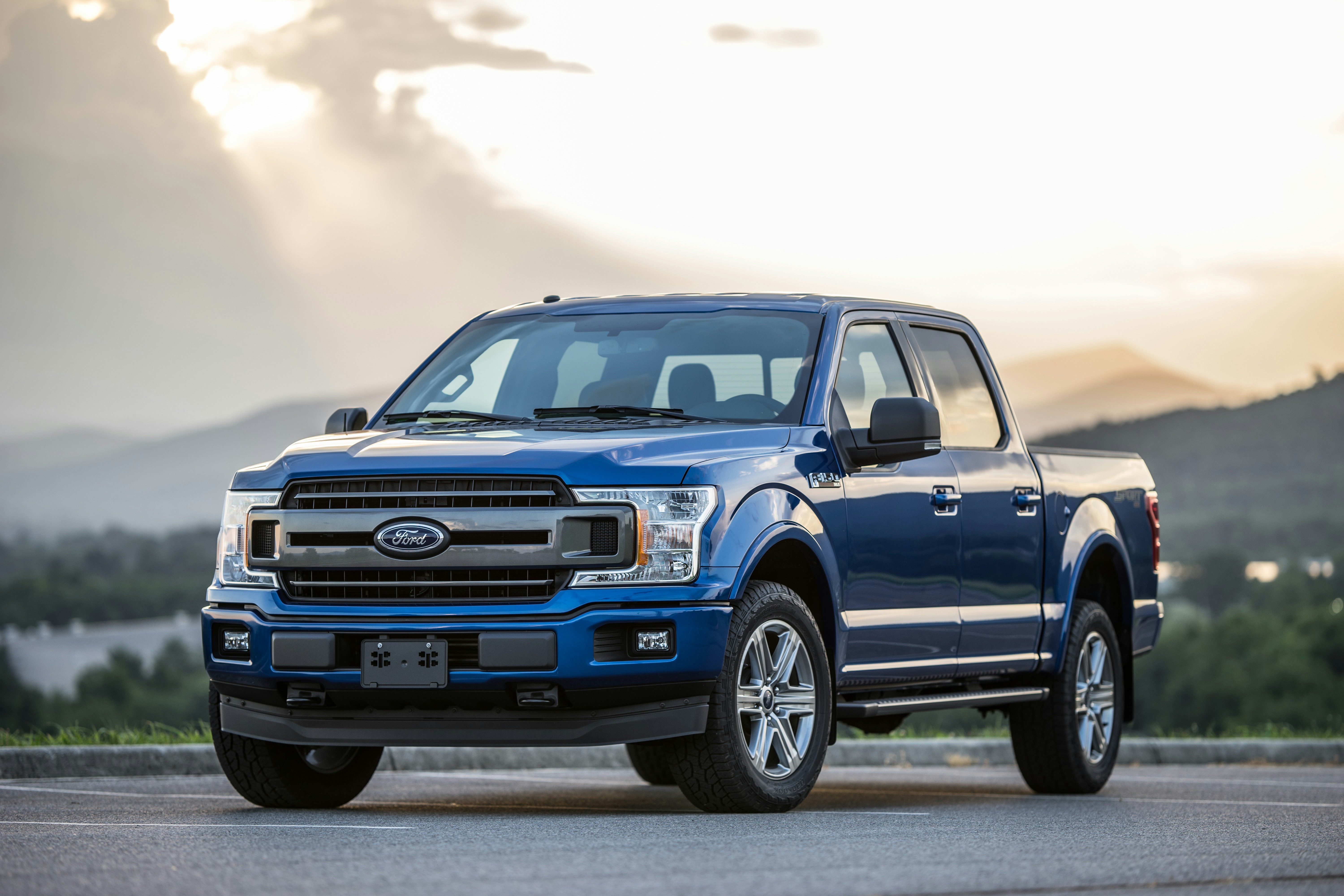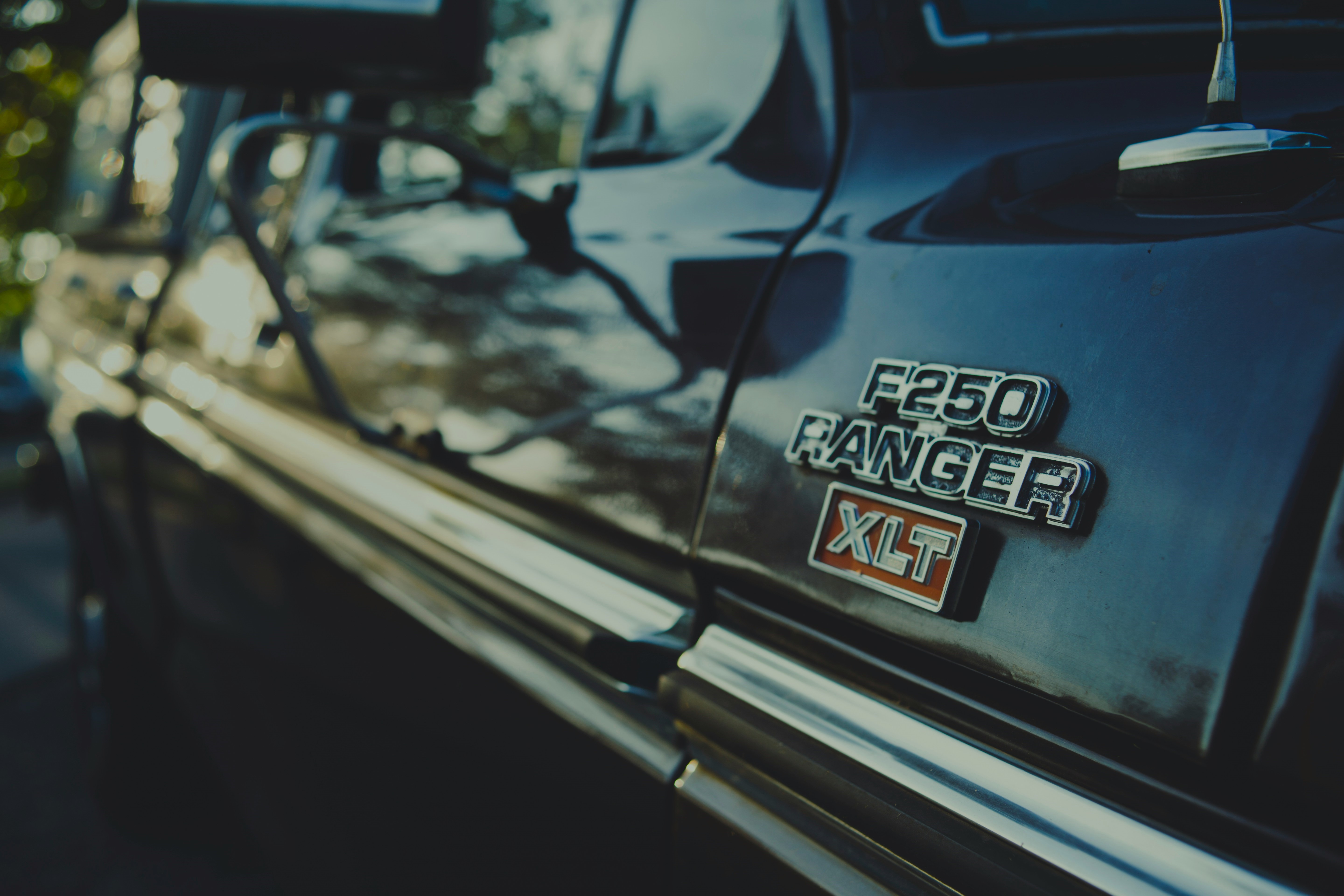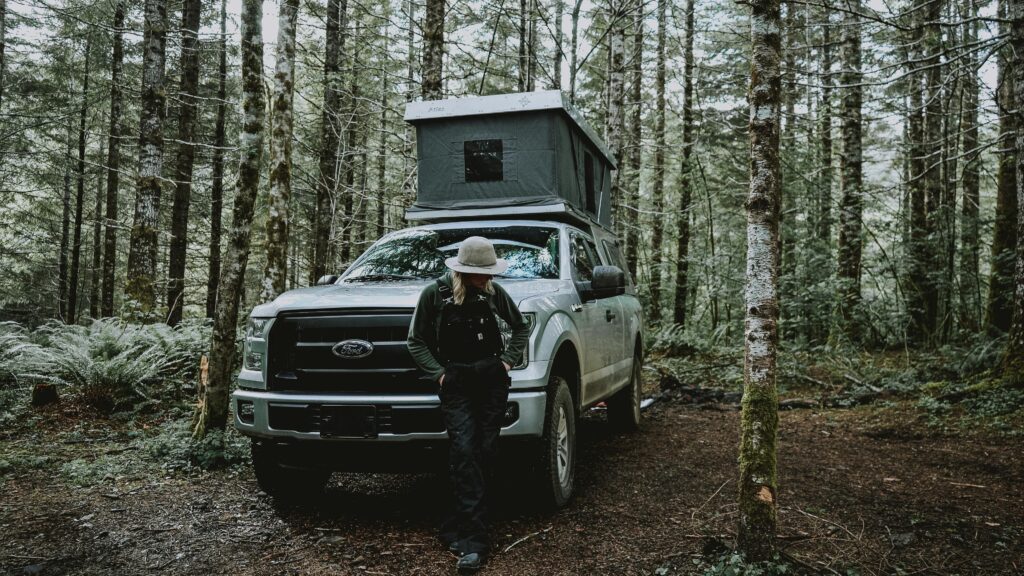
The Ford F150 vs F250: a question that looms large for many potential buyers. Guys, for decades, the Ford F-Series has reigned supreme in the truck world, consistently outselling the competition year after year. That kind of dominance isn’t a fluke – it means Ford knows how to build trucks people want. But within the F-Series lineup itself They’re both undeniably capable machines with that Ford toughness baked in. But figuring out which one actually aligns with your needs is where things get interesting.
Let’s be honest – not everyone needs the extreme towing power of a heavy-duty truck. Sure, it’s tempting to think “bigger is always better,” but with trucks, it’s not that simple. Maybe you’re a contractor who hauls heavy loads of materials daily, or a weekend adventurer who wants the freedom to go anywhere with a big camper in tow. In these cases, the F250’s extra capability might be non-negotiable.
But what if your truck needs are a bit more mixed? You need a truck for a blend of work tasks, DIY home projects, and the occasional family road trip. It needs to haul a decent load but also be comfortable enough for everyday driving. That’s where the F150’s versatility and daily-driving comfort could be the better fit.
The thing is, making the wrong choice can be costly and frustrating. An overpowered truck you never fully utilize is a waste of money. But a truck that can’t handle your typical workload means lost time, hassle, and potentially even missed work opportunities. Overspending is bad, but not having the right tool for the job can end up costing you even more.
The good news? Both the Ford F150 and the F250 are truly excellent trucks. Choosing the right one lets you unlock their full potential and makes every job (and adventure) that much smoother. Let’s dive into the key differences to help you figure out which of these Ford workhorses is your perfect match.
The Basics: F150 vs F250 Difference

At first glance, you might think the biggest difference between the F150 and F250 is just size. And while the F250 is generally a bit taller and bulkier, the true distinctions go much deeper than that. Let’s break it down:
- Class Warfare: Light-Duty vs. Heavy-Duty The F150 falls into the light-duty (half-ton) pickup truck category while the F250 enters the heavy-duty (three-quarter ton) realm. These classifications aren’t just marketing terms; they impact the truck’s overall design and weight-handling abilities.
- Built for the Task: F250s boast a sturdier frame, a beefed-up suspension system, and generally more robust components designed for greater loads. Picture the difference between a regular hammer and a sledgehammer – both get the job done, but one’s built for a heavier workload.
- What This Means for You: Think of the F150 as the extremely capable truck for most jobs. Need to tow a boat or a trailer with a few ATVs? Haul a big load of firewood? It’s got you covered. The F250 steps in when you’re regularly hauling or towing at the extreme end of the spectrum – think heavy construction equipment, giant fifth-wheel campers, that sort of thing.
- Price Check: As you might expect, an F250’s heavier-duty construction comes at a premium. The starting price for a basic F250 will be higher than that of an F150. Let’s put some numbers on it: a base-model F150 XL might start around the mid-$30,000s, while an F250 XL is likely to start closer to the mid-$40,000s. Of course, trim levels, options, and deals can influence those prices significantly.
Bottom Line: The key question is how much capability you honestly need on a regular basis. Overpaying for a truck you never fully utilize is just as big a misstep as getting one that’s underpowered for your typical tasks.
Where the F150 Pulls Ahead: Beyond Pure Power
While the F250 undeniably has the muscle edge, the F150’s appeal is about more than just towing and hauling. There are several areas where it truly shines, making it the smarter choice for many truck owners. Let’s dive in:
- Everyday Livability: The F150 is built with daily driving in mind. Its lighter-duty construction translates into a smoother ride on paved roads, more car-like handling for navigating busy city streets, and makes it easier to fit in standard garages. While nobody would call a full-size truck ‘small’, the difference in turning radius and overall length compared to the F250 can be significant, especially if parking space is tight.
- Fuel Efficiency: When gas prices are high, those MPG differences between the F150 and F250 really add up. The F150 offers a range of engines designed to balance power and efficiency, including hybrid options. While the F250 gets better mileage than heavy-duty trucks of the past, the F150 will still save you a noticeable amount at the pump, especially if you spend a lot of time behind the wheel.
- Lower Cost of Ownership: The F150 doesn’t just have a lower starting price than its beefier sibling – it typically costs less to maintain too. From routine service like oil changes and tires to potential repairs down the line, a lighter-duty truck generally puts less strain on components than hauling at max capacity all the time.
- Customization Potential: The F150’s massive popularity drives a booming aftermarket parts industry. Want a budget-friendly lift kit, unique wheels, or custom lighting setups? The options for the F150 are nearly endless, while finding compatible parts for an F250 can be trickier, and often pricier.
The F150 Sweet Spot: Perfect for Many, Not All
It’s important to clarify – choosing the F150 isn’t about settling for less! It’s about intelligently matching the truck to your needs. Think of it this way:
The F150’s capabilities cover what most people need a truck for most of the time. Hauling ATVs, trailers with building supplies, a boat for weekend fishing trips… it handles these jobs with ease.
If you’re only occasionally pushing your truck to its towing/hauling limits, the F150’s daily comfort and lower running costs likely outweigh those few times you’re right at its maximum capacity.
Bottom Line: The appeal of the F150 lies in its balance. You get serious capability paired with the daily drivability that makes owning and using your truck enjoyable instead of a constant compromise.
Towing & Hauling: Where the F250 Pulls Ahead
If you regularly push the limits of what a typical truck can haul or tow, this is where the differences between the F150 and F250 become crystal clear. While the F150 is undeniably strong, the F250 takes capability to another level.
Spec Showdown: Let’s Look at the Numbers
The maximum towing and payload capacities of the F150 and F250 vary depending on the engine, cab size, bed length, and other configurations. Here’s a quick comparison chart to illustrate the general difference:
Feature F150 (approx.) F250 (approx.)
Max Towing 10,000 – 14,000 lbs 15,000 – 22,000+ lbs
Max Payload 2,000 – 3,300 lbs 3,500 – 4,300+ lbs
Important Note: These are ballpark figures. Always reference Ford’s official specs for the specific truck configuration you’re considering.
Numbers Are Good, But What Do They MEAN?
Let’s translate those specs into real-world terms:
- Payload Example: A well-equipped F150 might haul around 15-20 standard-sized concrete blocks. A similarly equipped F250 could haul upwards of 25. That difference matters if you routinely load your truck bed to the max.
- Towing Example: An F150 can comfortably handle a mid-sized travel trailer for family vacations. The F250 opens up the possibility of towing those giant, luxurious fifth-wheel campers or heavy-duty equipment trailers.
Towing Made Easier: Ford Tech
Both the F150 and F250 offer features designed to make towing safer and less stressful. Some highlights include:
- Pro Trailer Backup Assist: Makes backing up a trailer as easy as turning a knob – great for beginners and tight spaces.
- Trailer Sway Control: Helps keep both the truck and trailer stable, even in windy conditions.
- Multiple Camera Views: Let you monitor your trailer from different angles, making hitching and maneuvering easier.
The Verdict For casual towing and hauling needs, the F150’s capabilities are impressive. If your truck will constantly be near its limits for work or play, the F250 delivers the serious muscle you need for the long haul.
Ford F150 vs F250: Beyond Muscle
Towing and hauling often grab the spotlight, but when you spend a lot of time in your truck, other factors become equally important. Let’s dive into how the F150 and F250 stack up in terms of everyday driving experience:
- Ride Comfort: It’s Not Just About Bumps The F150’s lighter-duty suspension is tuned with a greater focus on daily comfort. When driving unloaded, it smooths out potholes and rough roads noticeably better than an F250. The F250’s heavy-duty suspension means you’ll feel those imperfections more – a trade-off it makes for superior stability when loaded. Is it unbearable? No, especially in newer models, but you won’t mistake it for a luxury sedan’s ride either.
- Handling: More Than Just Cornering: While both trucks handle surprisingly well for their size, there are differences. An F150 will feel more nimble in tight city streets or parking lots. An F250 might take a bit wider turn and has a longer length overall to be aware of. However, the F150 is more likely to feel a bit wobbly if you haul at the top end of its capacity, while the F250 stays solidly planted.
- Fuel Economy: Paying at the Pump Unsurprisingly, the lighter and less powerful F-150 typically offers better fuel efficiency than the F-250. The exact difference depends on engine options, but let’s estimate that with mixed driving, you could see a 2-4 MPG advantage with the F-150. Think about how much you drive: if you rack up 15,000 miles a year and gas is $4/gallon, that MPG difference could mean spending an extra $300-$600+ annually on fuel with the F-250.
- Everyday Maneuverability: Garage Check The F-250 isn’t just wider and longer than the F-150, it’s usually a few inches taller too. If you have a standard-size garage, make sure to measure carefully as the F-250 might be a tight squeeze or not fit at all, especially if you add a lift kit or taller tires.
Bottom Line: If your truck is your daily commuter and occasional weekend workhorse, the F-150’s comfort and maneuverability will likely be appreciated. If you’re frequently near max load or driving on rough worksite roads, the F-250’s stability wins out, even if you sacrifice a bit of daily driving comfort.
FINALLY FORD F150 VS FORD 250: WHICH TO CHOOSE?
There’s no simple answer that fits everyone in the F-150 vs F-250 debate. The best way to decide is by taking a hard look at your specific needs. Let’s analyze a few common user profiles to see which truck makes the most sense:
- The Contractor: You haul heavy loads of building materials daily, often towing a trailer with tools and equipment.
- Verdict: F-250 is probably a necessity. You need the towing capacity, payload, and durability of a heavy-duty truck to keep your business running smoothly.
- The Family With a Camper: You love road trips and want a truck that can pull a spacious travel trailer for the whole family.
- Verdict: This one’s trickier! A well-equipped F-150 can handle most mid-sized campers, offering great everyday usability the rest of the time. However, if you dream of upgrading to a super-sized camper in the future, the F-250 leaves you room to grow. Consider how frequently you’ll be near the F-150’s max towing capacity – if it’s every trip, the extra power of the F-250 might be worth it for comfort, safety, and peace of mind.
- The Hobby Farmer: You need a truck for hauling hay, moving small trailers, tackling tough property work, but also want something comfortable for trips to town.
- Verdict: The F-150 is likely the sweet spot. It provides plenty of capability for your tasks, but offers better fuel economy, ride comfort, and generally easier handling for everyday use.
- The “Weekend Warrior”: Your main priority is hauling ATVs, jet skis, snowmobiles, or a small boat for fun on the weekends. For weekday commutes, you want something with car-like comfort.
- Verdict: Here’s where the F-150 truly shines. You get all the muscle you’ll realistically need for those weekend adventures, but with a smoother ride and lower fuel costs for your daily driving.
The “Upgrade” Question: When the F150 Isn’t Enough Anymore
Sometimes, your needs evolve over time. Maybe your side hustle turns into a full-fledged business, or you upgrade from a pop-up camper to your dream fifth-wheel. This is where it’s crucial to remember two things:
- Don’t Underestimate the Cost of Underpowered: Consistently pushing an F-150 to its max can lead to premature wear, breakdowns, and shorten its lifespan. The hassle and downtime caused by an overworked truck can end up far more expensive than just getting the right tool for the job upfront.
- F-250s Hold Value: While they cost more initially, heavy-duty trucks depreciate less over time. If you think you might require more power down the line, consider looking at a lightly used F-250. You might find one for a similar price to a new F-150 and end up with more capability while factoring in that eventual resale value.
Extra Considerations:
Beyond the Basics: Will you be customizing your truck heavily? The massive aftermarket support for both trucks is great, but the F-150 often has more budget-friendly upgrade options for those DIY-inclined.
- Location Matters: If you live in an area with tight roads, limited parking, or a small garage, the F-250’s size could truly impact daily usability.
- It’s Not Just Need, It’s Want: Be brutally honest about how often you’ll truly be utilizing the F-250’s extreme capabilities. If those truly heavy jobs are a few times a year, renting a proper truck for those days might be more financially sensible than owning an F-250 you rarely push to its limits.
Bottom Line: A Decision That Impacts Your Life
Your truck isn’t just a vehicle; it’s a tool that directly impacts your work, hobbies, and overall experience. Take the time to do an honest assessment of your needs, both current and future. Choosing wisely means having the right partner for wherever the road might lead.
The Verdict: Both are Great Trucks

After analyzing all their strengths and distinctions, it’s time to emphasize a crucial point: both the F-150 and F-250 are exceptional machines. This decision isn’t about choosing between “good” and “bad” – it’s about unlocking the one that syncs perfectly with your life’s demands.
Picture the F-150 as the Swiss Army Knife of the truck world. Its blend of power, day-to-day practicality, and surprising efficiency make it an ideal tool for tackling a huge variety of tasks. If you need a truck that can do it all – tow a boat on the weekend, head to a worksite on Monday, and haul the family on vacation with ease – the F-150 delivers on every front.
The F-250 is your heavy artillery. When the workload consistently veers into extreme territory – towing the biggest trailers, hauling massive loads, traversing unpredictable jobsite terrain – its raw strength and unwavering composure provide the confidence to tackle any challenge. If your success depends on having a truck that won’t break a sweat under demanding conditions, the F-250 gives you that rock-solid foundation.
So, How Do You REALLY Decide?
It comes down to prioritizing these factors:
- Needs vs. Wants: Differentiate between what you absolutely require in a truck versus those “nice to have” features. If you occasionally find yourself near the F-150’s limits, could you potentially rent a larger truck for a day rather than living with the F-250’s size and fuel costs daily?
- The Long Game: How might your needs change? A growing business might necessitate an upgrade down the line. On the other hand, if your hobbies are unlikely to require much more towing than what an F-150 can handle, that could swing your decision.
- Experience Matters: Test driving both back-to-back will highlight the nuances in how they are handled. Could you tolerate the F-250’s stiffer ride for daily commutes if it gives you the capability for your work? Only you can answer this based on your priorities.
- Beyond the Sticker Price: Fuel, maintenance, garage compatibility… these seemingly small things add up over the truck’s lifespan. Make sure you’ve got the full picture of ownership costs before making a decision.
- Get Informed with Ford’s Tools: Their website isn’t just for marketing. Use its resources to your advantage. Compare specs, build your ideal configuration, and find local dealerships – information is power!
The beauty of choosing an F-Series truck is that you’re not just buying a vehicle – you’re buying into a legacy of capability, innovation, and the confidence to tackle anything. Invest the time to analyze your needs, try both trucks out, and ultimately, go with the one that feels like an extension of your work ethic, lifestyle, and those places you’re itching to go.